Installing a new deck is a great way to make the most of your outdoor living space.
That said:
This is a pretty extensive and expensive project that requires careful planning.
Now:
When trying to decide between timber or composite decking, which are easily the two most popular types of decking in the UK, our customers often ask us:
How long does composite decking last?
The quick answer is around 25 to 30 years. But that’s just the start of it!
Because many engaged homeowners are drawn to composite decking due to its longevity, at Drainage Superstore we decided to put together a comprehensive guide on the average composite decking lifespan.
Here’s what we’re going to cover.
Table of contents:
- What is composite decking?
- How long does composite decking last compared to wood?
- Does composite decking need maintenance?
- What are the disadvantages of composite decking?
- A wise long-term investment for the garden & outdoors
What is composite decking?
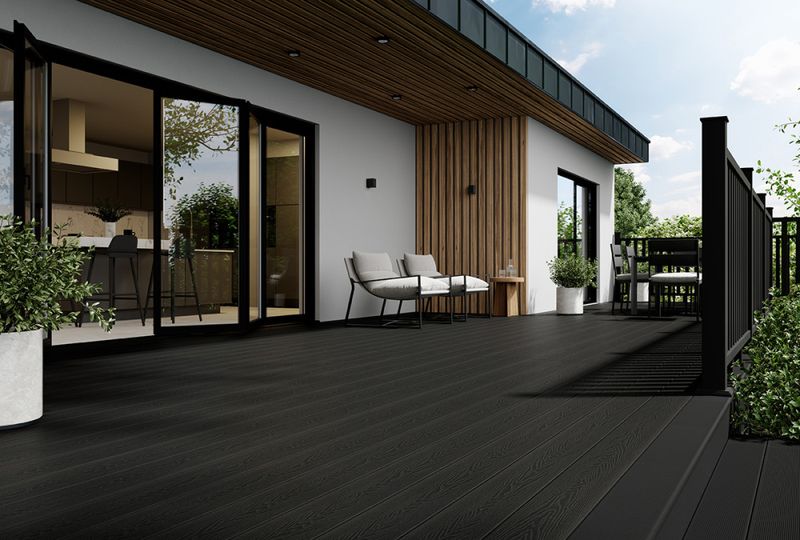
An alternative to timber decking available since the 1990s, composite decking is made from a combination of reclaimed wood fibres, plastic (usually polyethylene or polypropylene) and a binding agent.
It’s designed to mimic the appearance of traditional wooden decking while offering several advantages over natural wood. The boards are available in various sizes, colours and textures to resemble different types of wood grains.
One of the main pros of composite decking is its impressive durability. It’s highly resistant to rot, decay and insect damage, which are common issues associated with natural wood decking.
What’s more:
Composite decking is less prone to warping, splintering and fading compared to traditional wood.
How long does composite decking last compared to wood?
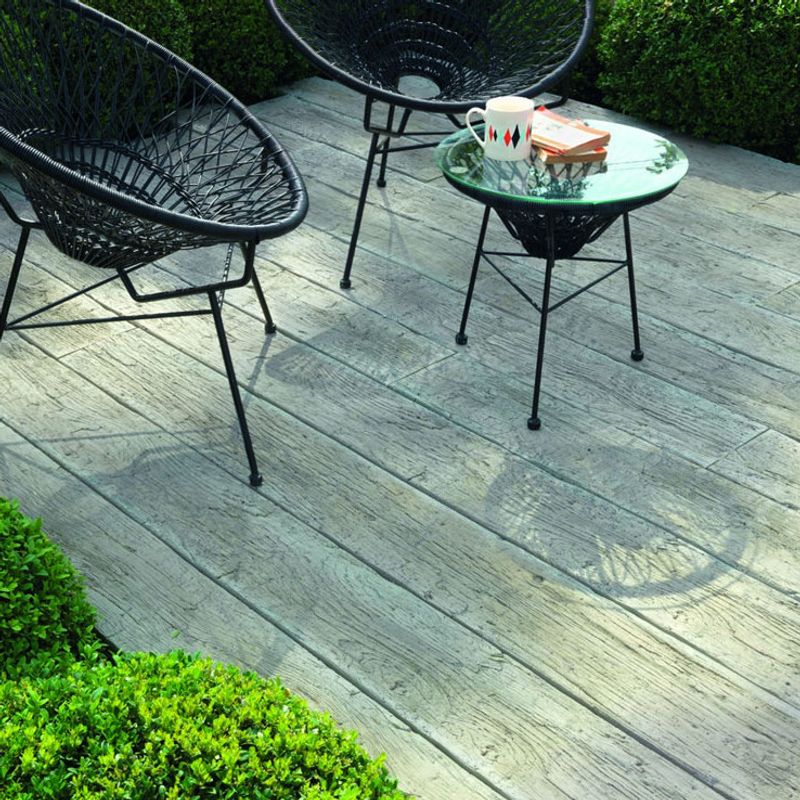
As we mentioned earlier, composite decking is known for its longevity. It typically has a longer lifespan than wood decking, as it’s less susceptible to weathering and general wear and tear.
Having said that, we should note that the exact lifespan of composite decking can vary considerably depending on the particular composite decking materials and whether it’s first-generation or second-generation.
Here’s the scoop:
First-generation composite decking boards typically feature a less effective wood-fibre layer on top, which means they tend to get less protection from the elements. So, their expected lifespan is around 15-20 years.
Nowadays, however, you’re more likely to come across second-generation composite decking. These innovative boards have a protective capped layer around 1.6 mm thick, which provides excellent protection from the elements and significantly reduces moisture absorption.
As a result, these decking types have considerably greater longevity than first-generation solutions. In fact, many of them come with a 25-year warranty but can easily last for around 30 years or longer when installed and looked after properly.
It gets better:
Many industry experts argue that high-quality capped composite decking can last as long as 50 years.
This is huge!
In contrast, traditional softwood decking has a lifespan of 15 to 20 years. Certain types of hardwood decking could potentially last as long as 25 years, but keep in mind that you’ll have to oil, clean and refinish it on a regular basis. So, maintaining your timber decking will be both extremely time-consuming and very expensive.
By this point, you’re probably wondering:
Does composite decking need maintenance?
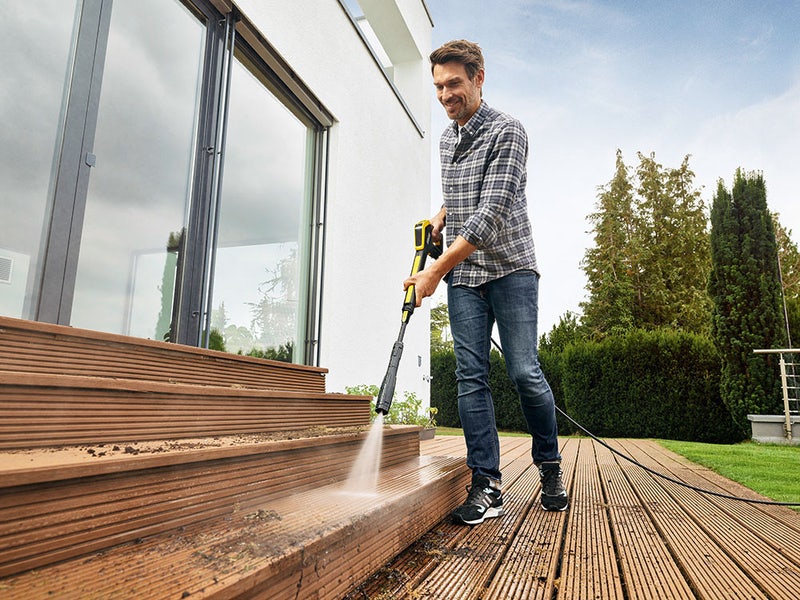
Another benefit of composite decking is that it’s low maintenance. Unlike wood, it doesn’t need to be stained, sealed or painted regularly. Composite decking is also resistant to moisture and stains, making it easier to clean and maintain.
But just because composite decking is light on maintenance, it doesn’t mean you can simply install and forget about it.
The thing is:
Regular cleaning and maintenance will help you boost your composite decking lifespan, ensuring the boards remain in mint condition for many years to come.
The cleaning process itself is fairly straightforward.
Check this out:
Start by clearing the deck of any furniture or items, sweeping away any debris and securing loose boards or screws.
Then, proceed to rinse the deck with a pressure washer on a low setting and apply decking cleaner or a homemade solution.
Next, scrub the deck with a brush, allowing the solution to sit for around 15 minutes.
Finally, rinse the deck with water and allow it to dry for at least 24 hours.
For a full overview of the process, check out our step-by-step guide on How to clean decking.
What are the disadvantages of composite decking?
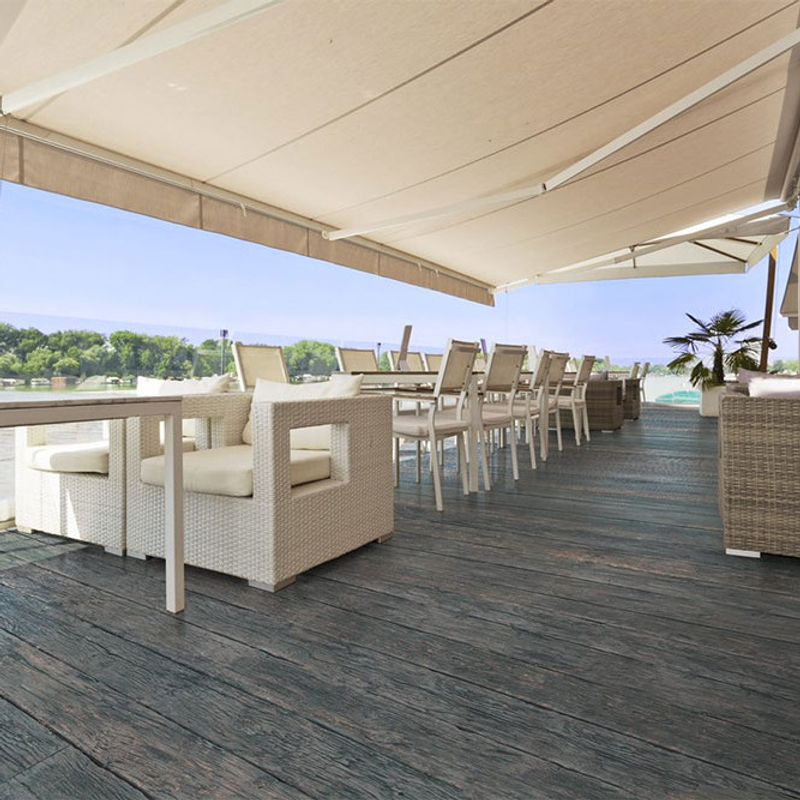
We’ve already explored the many benefits of composite decking.
But no solution is perfect, which is why we need to point out a couple of disadvantages.
Here’s the deal:
Firstly, composite decking can be quite expensive. Even though prices have come down over the last few years, your initial outlay is likely to be higher than if you opted for timber decking. On the plus side, you’re guaranteed to spend less on maintenance over the long run.
Secondly, capped composite decking comes with a somewhat artificial sheen, which some people take a disliking to. Naturally, that’s a matter of personal preference, and you and your family might find it quite charming instead.
Thirdly, even the best composite decking will show some signs of wear and tear over time.
Does composite decking fade?
Indeed, it does fade a little, especially when it’s constantly exposed to the unpredictable British weather. However, the same holds true for timber decking, so this isn’t a unique disadvantage of composite decks.
A wise long-term investment for the garden & outdoors
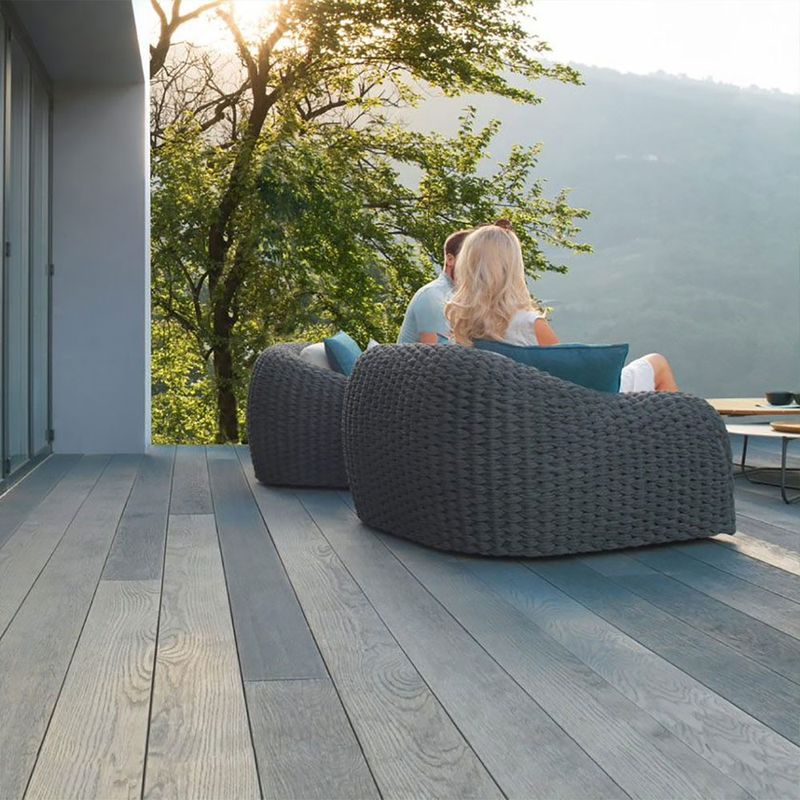
Composite decking offers a durable, low-maintenance alternative to traditional wood decking.
What’s more:
It comes with the added benefits of improved longevity and environmental sustainability, compared to very few disadvantages.
The bottom line is:
Now that you know the answer to the vital question ‘How long does composite decking last’, you should have a clear idea of what you can reasonably expect from your composite decking in terms of service and how to make the most of its lifespan.






















